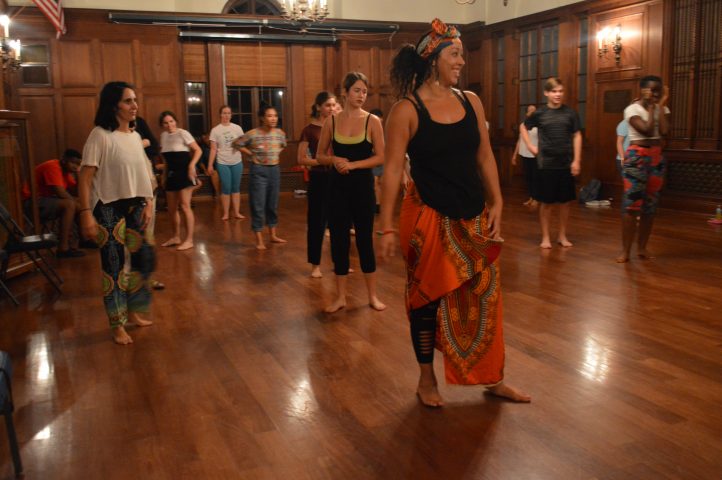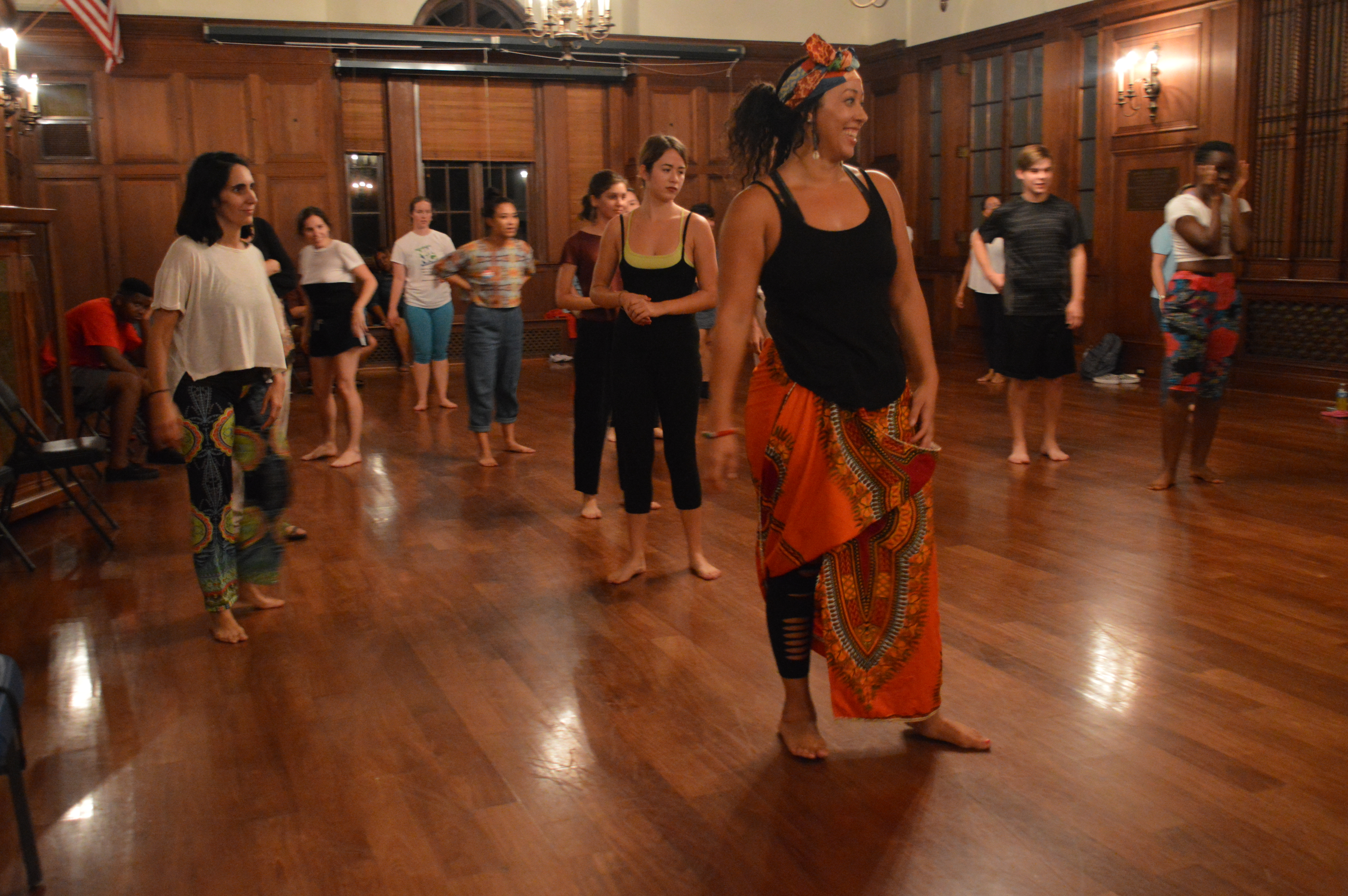
Kya Conner instructs the class on a West African dance known as Soko and typically danced during moments of celebration.
Students and faculty lined up in rows to the sound of beating drums as they danced in synchronized movements as Professor of Sociology Mecca Zabriskie instructed them where to go. A nod to the African Goddesses tutorial taught this semester, this event was a hint at more diverse classes focusing on West African material to come next year from Independent Study Projects (ISPs) to a semester long course in the spring.
“This was great!” Thesis student Jada Bennett, one of the students in the African Goddesses tutorial taught this semester, said. “I’m so happy that we have something cultural that wasn’t European and more geared towards people of color. Physically, it’s been a very enlightening experience. The teacher and all of the drummers are great! It’s been a really great experience.”
The attendants started off with stretches, before immediately learning some of the steps whilst drums played in the background. Most of the attendants could be seen sweating or stopping for water at various points during the lesson. Participants learned a particular dance called “soko” from Guinea, West Africa. Traditionally used for rites of passage, this dance can now be seen at any event causing for celebration, such as weddings.
The West African Dance and Drum Masterclass took place on Wednesday, Nov. 8, in the Music Room at College Hall. Zabriskie had invited Cheikh N’ Dong, who is the Master Drummer and Musical Director for Kuumba Dancers and Drummers, a Tampa-based West African dance troupe, and Khady Badji, Master Dancers and Choreographer for the Compangnie Bakalama, who had traveled here all the way from Senegal.
“I think a lot of people have a lot of misinterpretations of West African Dance. A lot of people have seen Coming to America and think that that opening scene is West African Dance,” Kya Conner, the Lead Choreographer for Kuumba, said. “Really, most of or dances that we do now in either hip hop or afro beats–a lot of that comes from West African dance. […] There is a technique to West African dance just like ballet or jazz.”
The event was free, open to the public and made possible from the Andrew W. Mellon Foundation, a grant that New College of Florida was awarded the previous year, to go towards increasing humanities-based projects at the institution.
“I was so happy to be here, I think that they [the participants] are so good,” Khady Badji said. “I’ve been doing this dance for years and, for them to have done this for one day, they were perfect.”
Zabriskie revealed at the end of the event that students could take a West African ISP in January, as well as a tutorial that will be taught by Zabriskie in the spring.
More information about the Kuumba Dance Troupe can be found on their website.
More information about West African dance tutorials can be found by contacting Professor Mecca Zabriskie.

